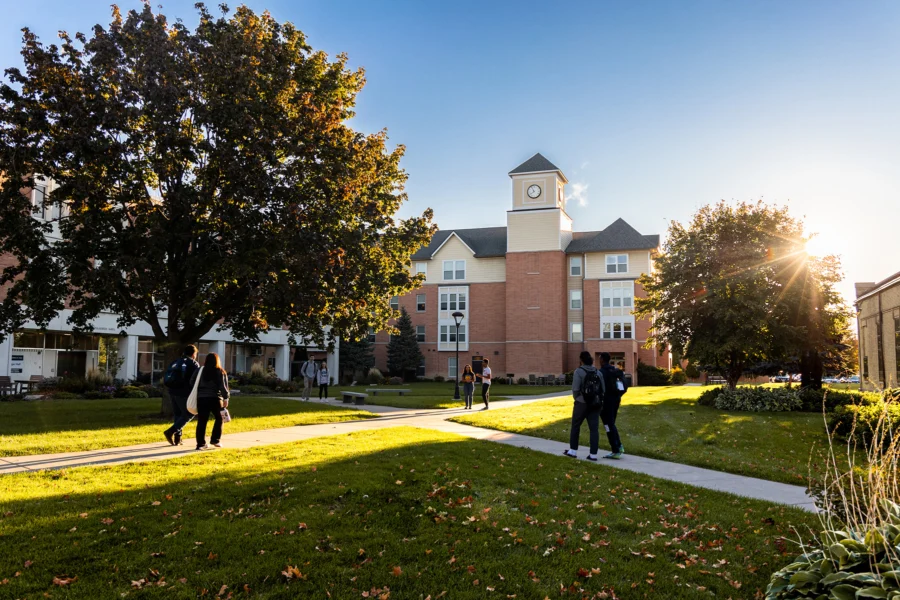As the world continues to evolve with new technologies, changing economies, and rapidly shifting job markets, the role of university education in preparing students for the workforce has never been more critical. University is traditionally seen as a pathway to personal growth, academic achievement, and career opportunities, but how effectively does it actually equip students for success in their professional lives?
In this article, we will explore how university education can prepare students for the workforce, the challenges that exist in bridging the gap between academia and the workplace, and what universities can do to better align their curricula with the needs of the modern job market.
The Traditional Role of University Education
Historically, university education has focused on providing students with knowledge in a specific academic discipline. The goal was not only to foster intellectual growth but also to prepare graduates for careers that required specialized skills in fields like law, medicine, engineering, business, and education. However, as the global job market evolves, the expectations of employers are shifting, and many graduates face challenges in making the transition from academia to professional life.
Knowledge Acquisition
At the heart of university education is the acquisition of knowledge. Students spend years studying their chosen fields, learning foundational theories, frameworks, and concepts. This knowledge is vital as it gives students the expertise needed for specific careers. For example:
- Medical students gain in-depth knowledge about human anatomy, treatments, and healthcare systems.
- Engineering students learn the principles of physics, mathematics, and design that are essential for problem-solving in real-world engineering contexts.
- Business students study the core principles of management, economics, and finance, preparing them for various roles in the corporate world.
While this specialized knowledge remains crucial, employers today are increasingly looking for graduates who not only possess subject-specific expertise but also have a diverse set of skills that are transferable across industries and job roles.
Intellectual and Critical Thinking Skills
A major aspect of university education is the development of critical thinking, problem-solving, and research skills. These abilities allow students to analyze information, question assumptions, and generate creative solutions to complex challenges. These skills are highly valued in the workforce, as employees who can think critically are better equipped to adapt to new challenges and innovate within their roles.
However, the gap exists when students are asked to apply these skills in real-world settings, often with more urgency, deadlines, and accountability than in academic environments. Therefore, it’s important that universities teach students not just how to think critically, but how to apply this skill in practical, workplace scenarios.
Key Areas Where Universities Can Prepare Students for the Workforce
While academic knowledge is important, students need more than just theoretical understanding to thrive in today’s job market. Below are the key areas where universities can better equip students to make a successful transition into the workforce.
1. Developing Soft Skills
The demand for soft skills, which include communication, teamwork, leadership, adaptability, and emotional intelligence, has risen dramatically in the workplace. Employers frequently cite a lack of these interpersonal skills as a barrier to hiring graduates, despite their strong academic qualifications.
University education can prepare students for the workforce by offering opportunities to develop these critical skills, such as:
- Group projects and team-based assignments: These help students learn to collaborate, manage conflicts, and practice communication in diverse teams, simulating real-world work environments.
- Internships and work placements: Allowing students to gain firsthand experience in the workplace helps them refine their professional communication, time management, and teamwork skills.
- Workshops and seminars: These can focus on enhancing skills like public speaking, negotiation, and problem-solving, all of which are highly valued by employers.
2. Hands-On Experience and Internships
One of the most effective ways to prepare students for the workforce is through hands-on experience. While classroom learning is valuable, it is often theoretical. Internships, co-op programs, and practical work placements allow students to apply their knowledge to real-world problems and gain insight into their future careers. This hands-on experience helps students understand how to navigate professional environments, apply theoretical concepts in practice, and gain technical skills directly related to their field.
For example:
- Medical students can benefit from clinical rotations in hospitals, which give them practical exposure to patient care, medical technologies, and healthcare systems.
- Engineering students can engage in research or internships with firms to work on actual engineering projects and gain experience with cutting-edge tools and technologies.
- Business students can work in consulting, marketing, or finance roles to see how businesses operate in real time and develop the ability to think critically about organizational strategies.
3. Entrepreneurship and Innovation
In today’s economy, entrepreneurship and innovation are increasingly valued, even in traditional industries. University programs can better prepare students for the workforce by fostering an entrepreneurial mindset. This includes encouraging students to think creatively, identify opportunities, and take initiative.
Universities can provide resources for aspiring entrepreneurs, such as:
- Startup incubators: These programs offer students the chance to create and launch their own businesses while still in school, giving them exposure to real-world challenges in areas like funding, product development, and marketing.
- Innovation labs and hackathons: Students can participate in events where they are tasked with solving problems or creating new products, offering them hands-on experience in innovation and product development.
Such experiences can not only help students develop an entrepreneurial spirit but also equip them with valuable skills, such as adaptability and creative problem-solving, which are essential in any job.
4. Industry-Relevant Curriculum
An effective way universities can bridge the gap between academia and the workforce is by designing industry-relevant curricula that stay current with the latest trends, tools, and technologies. Students should graduate with skills that match the expectations of the job market.
Some strategies for achieving this include:
- Collaborating with industry partners: Universities can work with companies to design course content that reflects current industry standards, ensuring students acquire knowledge and skills that are directly applicable to their future careers.
- Incorporating emerging technologies: Universities should integrate training on the latest technologies (such as artificial intelligence, data analytics, cloud computing, etc.) into their courses, as these are often crucial in modern job markets.
- Guest lectures and industry events: Inviting professionals from various fields to speak with students allows them to gain insights into real-world applications of their studies, helping them connect theory to practice.
5. Career Services and Networking
Another essential element of university education is providing students with the tools and support they need to successfully enter the job market. Career services can help students by offering:
- Job fairs and networking events: These give students the opportunity to meet with potential employers, learn about different career paths, and develop professional connections.
- Resume workshops and interview preparation: These services help students refine their job applications and hone their interviewing skills, making them more competitive candidates.
- Career coaching: Personalized guidance from career coaches can help students identify their strengths, interests, and career goals, providing them with a roadmap for entering the workforce.
By focusing on career preparation and networking, universities can play a crucial role in helping students secure jobs after graduation.
6. Lifelong Learning and Adaptability
In an ever-changing job market, the ability to adapt and continue learning throughout one’s career is essential. Universities should encourage a growth mindset, where students view learning as a lifelong process and are equipped with the skills to continually develop themselves throughout their careers.
University programs can foster this mindset by:
- Offering continuing education programs and certifications that allow graduates to upskill and stay competitive as they enter the workforce and progress in their careers.
- Promoting a culture of self-directed learning where students are encouraged to seek knowledge beyond the classroom, using online resources, books, or industry seminars.
By preparing students to be adaptable and lifelong learners, universities can ensure that their graduates remain relevant and successful in an ever-changing job landscape.
Conclusion: Preparing Students for Success
University education plays a crucial role in preparing students for the workforce, but there is always room for improvement. By focusing on a combination of specialized knowledge, practical skills, soft skills, and real-world experience, universities can ensure that their graduates are well-equipped to meet the challenges of the modern job market. Collaboration with industries, fostering entrepreneurial thinking, and providing career support are essential steps in bridging the gap between academia and professional life.
As the world of work continues to evolve, universities must continue adapting their teaching methods, curricula, and support systems to best serve their students. By doing so, they can ensure that graduates are not only ready to enter the workforce but also equipped to thrive in their chosen careers, contribute meaningfully to society, and continuously grow as professionals throughout their lives.




